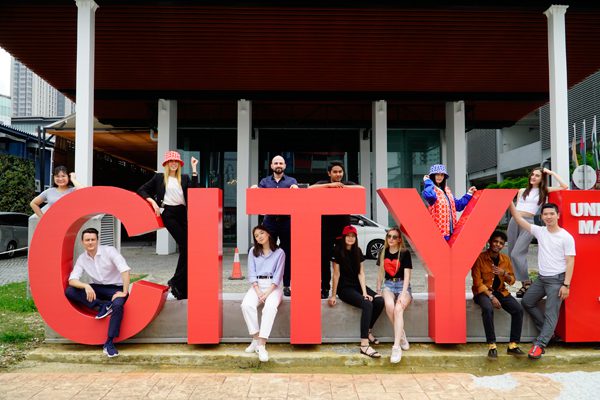Faculty of Engineering
Diploma in Mechanical Engineering
(R/521/4/0107) (MQA/FA 5290) 02/2027

Programme Description
Mechanical engineering is at the forefront of developing new technologies for a number of industries including transport, healthcare, construction and robotics. This programme combines the basic knowledge of physical sciences as well as the engineering education.
Programme Highlights
 Mode: [acf field=”full_time_part_time”]
Mode: [acf field=”full_time_part_time”] Duration: [acf field=”duration”]
Duration: [acf field=”duration”] Credit Hours: [acf field=”credit_hours”]
Credit Hours: [acf field=”credit_hours”] Scholarships [acf field=”scholarships”]
Scholarships [acf field=”scholarships”] Intake: [acf field=”calendar”]
Intake: [acf field=”calendar”] [acf field=”hostel”]
[acf field=”hostel”]
YEAR 1
- Pengajian Malaysia 2/ Bahasa Melayu Komunikasi 1*
- Academic English 1
- Engineering Mathematics 1
- Statics
- Programming
- Academic English II
- Engineering Drawing
- Engineering Mathematics 2
- Professional Communication / Bahasa Kebangsaan A
- Academic English III
- Physics
YEAR 2
- Co-curriculum
- Thermodynamics Dynamics
- Mechanics of Solids
- Fundamental of Electrical Circuit
- Mechanics of Structures
- Manufacturing Process
- Materials Science
- Engineering Lab
- Computer Aided Design
- Basic Entrepreneurship/ Bahasa Kebangsaan A
- Fluid Mechanics
YEAR 3
- Mechanics of Machines
- Engineering Workshop
- Fluids Power
- Applied thermodynamics
- Industrial Management Project
- Industrial Training
Entry
Requirements
- SPM: Minimum 3 credits subjects. Credit in Mathematics and pass in English
- STPM: Minimum C (GPA 2.0)
- Pass in Mathematics and English
- CERTIFICATE IN ENGINEERING / ENGINEERING TECHNOLOGY / RECOGNISED VOCATIONAL AND TECHNICAL / SKILLS CERTIFICATE
- Minimum of 1 year of relevant work experience or 1 semester of a bridging programme
For International Students
IELTS 5.0 or equivalent
Programme Educational Objectives (PEO)
| PEO | Statements |
| PEO1 | Graduate practicing Mechanical Engineering knowledge at technician level |
| PEO2 | Graduates communicate effectively and lead their team in industries |
| PEO3 | Graduates with commitment for self-learning and continuous academic and professional development. |
Programme Outcomes (PO)
- PO1: Knowledge – Apply knowledge of applied mathematics, applied science, engineering fundamentals and an engineering specialisation as specified in DK1 to DK4 respectively to wide practical procedures and practices
- PO2: Problem Analysis – Identify and analyse well-defined engineering problems reaching substantiated conclusions using codified methods of analysis specific to their field of activity (DK1 to DK4);
- PO3: Design/Development of Solutions – Design solutions for well-defined technical problems and assist with the design of systems, components or processes to meet specified needs with appropriate consideration for public health and safety, cultural, societal, and environmental considerations (DK5);
- PO4: Investigation – Conduct investigations of well-defined problems; locate and search relevant codes and catalogues, conduct standard tests and measurements;
- PO5: Modern Tool Usage – Apply appropriate techniques, resources, and modern engineering and IT tools to well-defined engineering problems, with an awareness of the limitations (DK6);
- PO6: The Engineer and Society – Demonstrate knowledge of the societal, health, safety, legal and cultural issues and the consequent responsibilities relevant to engineering technician practice and solutions to well-defined engineering problems (DK7);
- PO7: Environment and Sustainability – Understand and evaluate the sustainability and impact of engineering technician work in the solution of well-defined engineering problems in societal and environmental contexts (DK7);
- PO8: Ethics – Understand and commit to professional ethics and responsibilities and norms of technician practice;
- PO9: Individual and Teamwork – Function effectively as an individual, and as a member in diverse technical teams;
- PO10: Communication – Communicate effectively on well-defined engineering activities with the engineering community and with society at large, by being able to comprehend the work of others, document their own work, and give and receive clear instructions;
- PO11: Project Management and Finance – Demonstrate knowledge and understanding of engineering management principles and apply these to one’s own work, as a member or leader in a technical team and to manage projects in multidisciplinary environments;
- PO12: Life Long Learning – Recognise the need for, and have the ability to engage in independent updating in the context of specialised technical knowledge;
Contact Us

